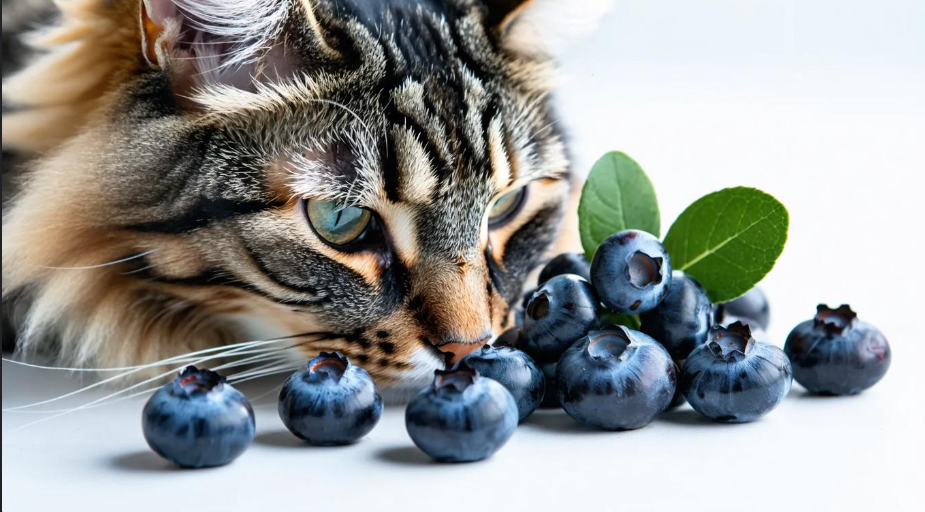Can cats eat olive oil?
Yes, cats can eat olive oil in small amounts. It’s generally safe for cats and may offer some health benefits when used in moderation. However, it’s important to keep the following points in mind:
1. Moderation is key: Too much olive oil can cause digestive upset or diarrhea.
2. Potential benefits: Small amounts may help with constipation, and hairballs, and promote a healthy coat.
3. Not a substitute: Olive oil shouldn’t replace any part of a cat’s balanced diet.
4. Gradual introduction: Start with tiny amounts to see how your cat reacts.
5. Quality matters: Use high-quality, extra virgin olive oil without additives.
6. Consult a vet: Always check with your veterinarian before adding olive oil to your cat’s diet, especially if they have health issues.
Remember, while olive oil can be safe for cats, it’s not a necessary part of their diet. A balanced, appropriate cat food should meet all their nutritional needs.
Table of Contents
Can cats eat olive oil with a happy face?
Yes, cats can eat small amounts of olive oil! 😺
Olive oil can be safe and even beneficial for cats when given in moderation. It may help with:
1. Coat health
2. Hairball prevention
3. Constipation relief
However, remember:
• Use only a tiny amount (1/4 to 1/2 teaspoon)
• Introduce slowly
• Watch for any digestive issues
Always consult your vet before adding new foods to your cat’s diet. But overall, a little olive oil can make for a happy, healthy kitty! 😸🫒
Relavant article: Can Cats Eat Microgreens? || Can Cats Eat Pepperoni?|| Can Cats Eat Garbanzo Beans?
Why do cats love olive oil?
Cats don’t necessarily “love” olive oil, but some may be attracted to it for a few reasons:
1. Fat content: Cats are naturally drawn to high-fat foods, and olive oil is rich in fats.
2. Scent: Some cats might find the smell appealing.
3. Texture: The smooth, oily texture may be interesting to some cats.
4. Novelty: Cats can be curious about new items in their environment.
5. Potential health benefits: If a cat has experienced relief from constipation or hairballs after consuming olive oil, they might associate it with feeling better.
However, it’s important to note that not all cats will show interest in olive oil, and individual preferences can vary. Also, while some cats might be attracted to it, it doesn’t mean they should consume it regularly or in large amounts. Always prioritize a balanced diet appropriate for cats and consult with a veterinarian before introducing new foods.
Is it safe to give a cat olive oil?
Yes, it is generally safe to give cats olive oil in small, controlled amounts. However, it’s crucial to approach this with caution and keep several important factors in mind:
1. Moderation is essential: Only give small amounts, typically no more than 1/4 to 1/2 teaspoon per day for an average-sized cat.
2. Introduce gradually: Start with tiny amounts to see how your cat reacts.
3. Not for all cats: Cats with certain health conditions, such as pancreatitis or obesity, should avoid olive oil.
4. Quality matters: Use only high-quality, extra virgin olive oil without additives.
5. Not a dietary staple: Olive oil should not replace any part of a cat’s balanced diet.
6. Potential benefits: Small amounts may help with constipation, and hairballs, and promote a healthy coat.
7. Possible side effects: Too much can lead to digestive upset, diarrhea, or weight gain.
8. Individual reactions: Some cats may be more sensitive to olive oil than others.
9. Veterinary guidance: Always consult your vet before adding olive oil to your cat’s diet, especially if they have existing health issues.
10. Monitor closely: Watch for any adverse reactions when introducing olive oil.
Remember, while olive oil can be safe in small amounts, it’s not a necessary part of a cat’s diet. A high-quality, balanced cat food should provide all the nutrients your cat needs. If you’re considering olive oil for a specific health concern, it’s best to discuss alternative treatments with your veterinarian first.
How much olive oil is safe for cats?
When it comes to giving olive oil to cats, moderation is key. Here’s a concise guide on safe amounts:
1. Recommended dosage: Generally, 1/4 to 1/2 teaspoon per day for an average-sized adult cat (8-10 pounds) is considered safe.
2. Frequency: It’s best not to give olive oil daily. Instead, use it occasionally or as directed by your veterinarian.
3. Start small: Begin with just a few drops to see how your cat reacts before increasing to the full recommended amount.
4. Size matters: Adjust the amount based on your cat’s size. Smaller cats should receive less, while larger cats may tolerate slightly more.
5. Purpose: If using for hairball prevention, 1/8 to 1/4 teaspoon once or twice a week is typically sufficient.
6. Medical conditions: Cats with certain health issues may require different amounts or should avoid olive oil altogether. Always consult your vet.
7. Monitor closely: Watch for any signs of digestive upset or changes in your cat’s behavior after introducing olive oil.
8. Don’t overdo it: Even if your cat seems to enjoy it, stick to the recommended amounts to avoid potential health issues.
Remember, while olive oil can be safe in small quantities, it’s not a necessary part of a cat’s diet. Always prioritize a balanced, species-appropriate diet and consult with your veterinarian before making any significant changes to your cat’s nutrition regimen.
Benefits of olive oil for cats
Olive oil can offer several potential benefits for cats when used appropriately. Here’s a compelling list of advantages:
1. Hairball prevention: The oil can help lubricate the digestive tract, making it easier for cats to pass hairballs naturally.
2. Coat health: Rich in omega-3 fatty acids, olive oil can promote a shinier, healthier coat and reduce shedding.
3. Skin health: It may help alleviate dry, itchy skin and reduce inflammation associated with skin conditions.
4. Constipation relief: The oil’s lubricating properties can help ease mild constipation and promote regular bowel movements.
5. Anti-inflammatory properties: Olive oil contains antioxidants that may help reduce inflammation throughout the body.
6. Heart health: The monounsaturated fats in olive oil can contribute to cardiovascular health.
7. Weight management: When used in moderation, it may help cats feel fuller, potentially aiding in weight control.
8. Brain function: The omega-3 fatty acids may support cognitive function, especially in older cats.
9. Immune system boost: Antioxidants in olive oil can help strengthen the immune system.
10. Palatability enhancer: A small amount can make food more appealing to picky eaters.
While these benefits are promising, it’s crucial to remember that olive oil should be used in moderation and under veterinary guidance. It’s not a cure-all and should complement, not replace, a balanced diet and proper medical care. Always consult with your vet before introducing olive oil or any new supplement to your cat’s diet, especially if your cat has existing health conditions.
Risks of olive oil for cats
While olive oil can offer benefits, it’s crucial to be aware of the potential risks for cats. Here’s a compelling overview of the concerns:
1. Gastrointestinal upset: Excessive consumption can lead to diarrhea, vomiting, or abdominal discomfort.
2. Weight gain: Olive oil is calorie-dense, and overuse can contribute to obesity, a significant health risk for cats.
3. Pancreatitis: High-fat foods, including olive oil, may trigger pancreatitis in susceptible cats.
4. Nutrient imbalance: Relying too heavily on olive oil can disrupt the balance of a cat’s carefully formulated diet.
5. Reduced appetite: Some cats may fill up on oil and eat less of their regular, nutritionally complete food.
6. Choking hazard: If given improperly, cats might inhale the oil, leading to respiratory issues.
7. Allergic reactions: Though rare, some cats may be allergic to olive oil.
8. Interference with medications: Olive oil might affect the absorption of certain medications.
9. Liver stress: Excessive oil consumption can put additional strain on the liver, especially in cats with pre-existing liver conditions.
10. Skin irritation: If applied topically, some cats may experience skin irritation or excessive oiliness.
11. Dependency: Regular use might lead to a cat becoming overly reliant on oil for digestion.
12. Quality concerns: Low-quality or rancid olive oil can pose health risks.
Remember, while these risks exist, many can be mitigated by using olive oil sparingly and under veterinary guidance. Always consult with your vet before introducing any new supplement to your cat’s diet, especially if your cat has existing health conditions or is on medication. The key is moderation and professional oversight to ensure your cat’s safety and well-being.
Can you put olive oil in cat water?
While it’s technically possible to add olive oil to a cat’s water, it’s generally not recommended for several compelling reasons:
1. Palatability: Cats are notoriously finicky drinkers, and adding oil to their water may deter them from drinking altogether, potentially leading to dehydration.
2. Separation: Oil and water don’t mix well. The oil will float on top, making it difficult for cats to consume it effectively.
3. Hygiene concerns: Oil in water can create a breeding ground for bacteria, especially if left out for extended periods.
4. Inconsistent dosage: It’s challenging to control how much oil a cat consumes when it’s mixed in water.
5. Potential mess: Oily water can create spills and stains around the water bowl area.
6. Reduced water intake: Cats may drink less water if they dislike the taste or smell of the oil.
7. Digestive issues: Consuming oil-water mixtures may lead to gastrointestinal upset in some cats.
Instead of adding olive oil to water, consider these safer alternatives:
1. Mix a small amount (1/4 to 1/2 teaspoon) directly into wet food.
2. Apply a drop on your cat’s paw for them to lick off.
3. Use a dropper to administer the oil orally if recommended by your vet.
Always consult with your veterinarian before introducing olive oil or any supplement to your cat’s diet. They can provide guidance on the appropriate amount and method of administration based on your cat’s specific health needs and conditions.
conclusion
while cats can consume small amounts of olive oil without immediate harm, it’s not an essential or recommended part of their diet. Here’s a concise summary:
1. Limited benefits: Olive oil may offer some minor benefits, such as helping with hairballs or constipation, but these are often overstated.
2. Potential risks: Excessive consumption can lead to gastrointestinal upset, weight gain, and nutrient imbalances.
3. Not a dietary necessity: Cats are obligate carnivores and don’t require olive oil in their diet.
4. Veterinary guidance is crucial: Always consult with a vet before adding any supplement to your cat’s diet.
5. Moderation is key: If recommended by a professional, use only in small, controlled amounts.
6. Better alternatives exist: For most issues that olive oil might address, there are safer, more effective feline-specific solutions available.
7. Individual factors matter: Each cat’s needs and tolerances can vary, so blanket recommendations are inappropriate.
Ultimately, while olive oil isn’t toxic to cats, it’s not a dietary staple or cure-all. A balanced, species-appropriate diet, regular veterinary check-ups, and addressing specific health concerns with professional guidance are the best ways to ensure your cat’s optimal health and well-being.







Leave a Reply